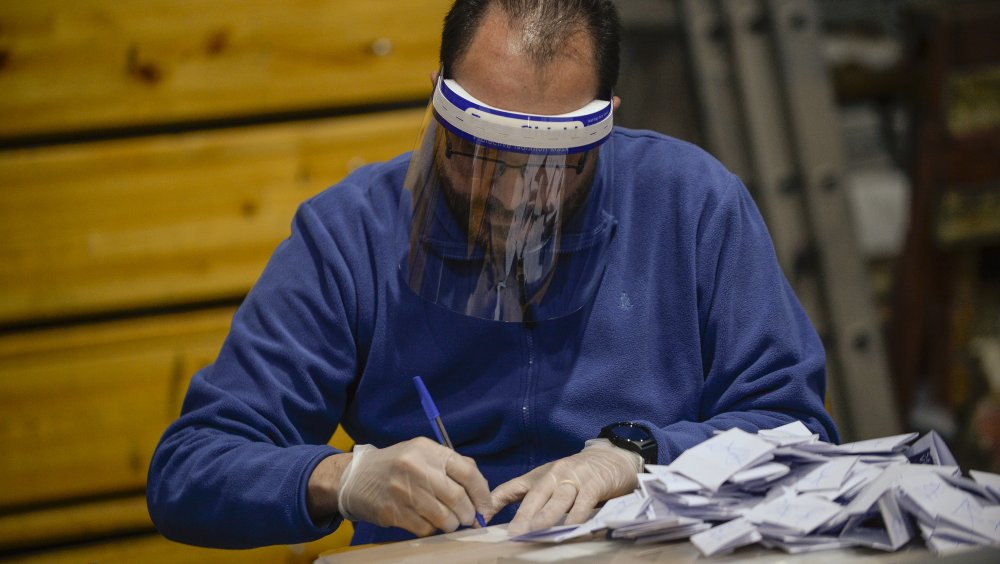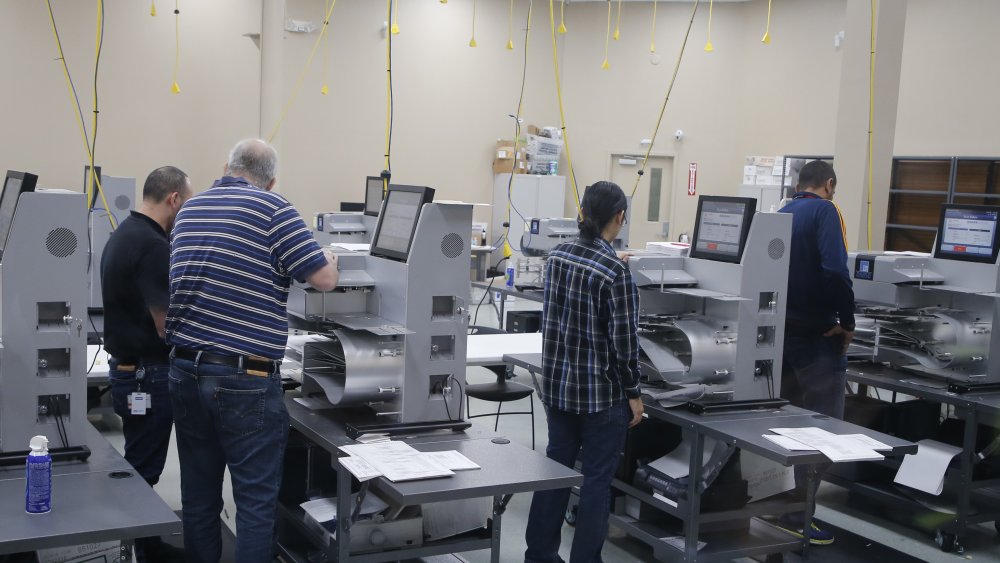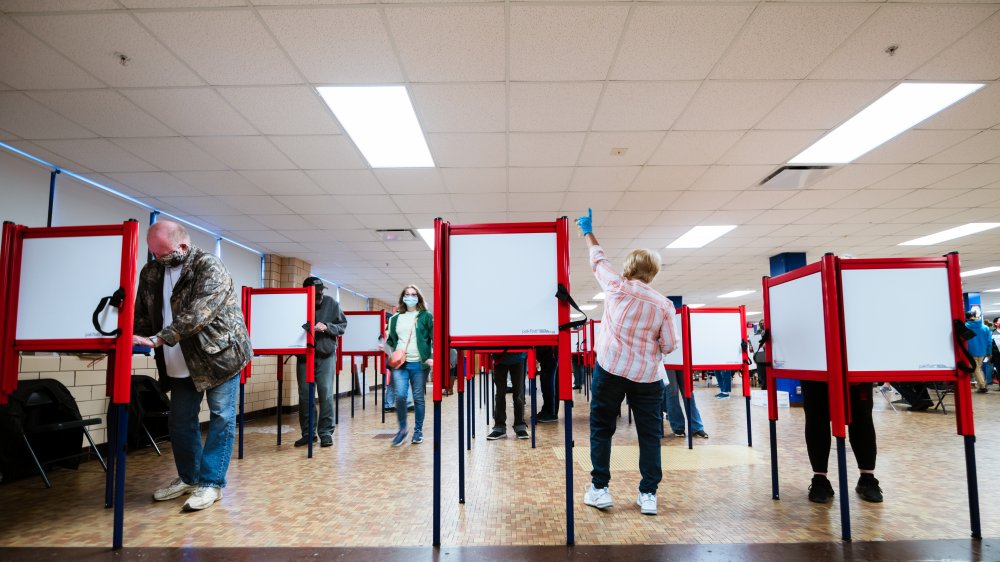The Real Reason The Election Results May Be Delayed
We may feel like we crawled on our bellies, hands and knees to get to November 3, yet here we are. But before we think the end is near, we'll have to reassess that opinion, because as numerous news agencies from AP to CNN, and who have covered several election cycles over the last few decades warn that it may be a while before we get results. And that's ok, because as AP puts it, its ok to keep counting ballots past Election Day, because election officials do it all the time. This, despite comments from President Donald Trump who has said "I think it's terrible that we can't know the results of an election the night of the election" (via The Hill).
There is one very good reason why counting the total number of votes — which cannot be completed on Election Day anyway — is expected to be even slower than normal this year. Thanks to the pandemic, many voters have chosen to vote by mail, and these are expected to take more time to tally and tabulate. Different states also have different rules when it comes to counting ballots, so while some states might start out red, the could end up going blue or vice versa (via FiveThirtyEight).
Results rely on states, which have different voting laws
The disparity in election laws between different states might have an impact what early returns look like particularly in key states like Pennsylvania. There, election officials can't start counting ballots until Election Day and all the early results will be coming in from day-of voting, which could mean the state could start out one way, and end up another. The opposite is true in Florida and Texas, where early votes are counted and processed ahead of time, which is why it is critical for both sides to be patient (via CNN). Waiting also means as many as 80 million votes get counted, and those that made an effort to make it to the polls get their voices heard on Election Day (via Marie Claire).
Even when voting wasn't hampered by a pandemic, CNN says it wasn't able to call a winner on election night in two of the last five presidential elections held in the last 20 years. There were no projections made in 2000, when George W. Bush ran against Al Gore; neither were there projections made in 2004 when John Kerry ran against Bush, who ran as the incumbent president. But CNN did make projections that eventually turned out to be true in 2008, 2012, 2016.
News organizations use polling data and voter surveys, which will be inaccurate in 2020
In order to call a winner, news networks like CNN and AP make use of projections which are based on voter surveys and other political data. Even that might be a problem, because as Five Thirty Eight points out, exit data will be particularly inaccurate this year because of pandemic-related changes to the way polling is being conducted. Also, voters aren't likely to head down to the voting booth to speak to pollsters if they've already cast their ballots.
While we don't know whether tomorrow will mark the beginning of one election nightmare and the beginning of another one, or just another chapter in the dumpster fire that is 2020 is something we won't know until we see it. At any rate, Time called this election turn-out a "once-a-century" level of participation in democracy, and because of this the publication says a delay doesn't mean democracy is broken — that means it's actually working.


